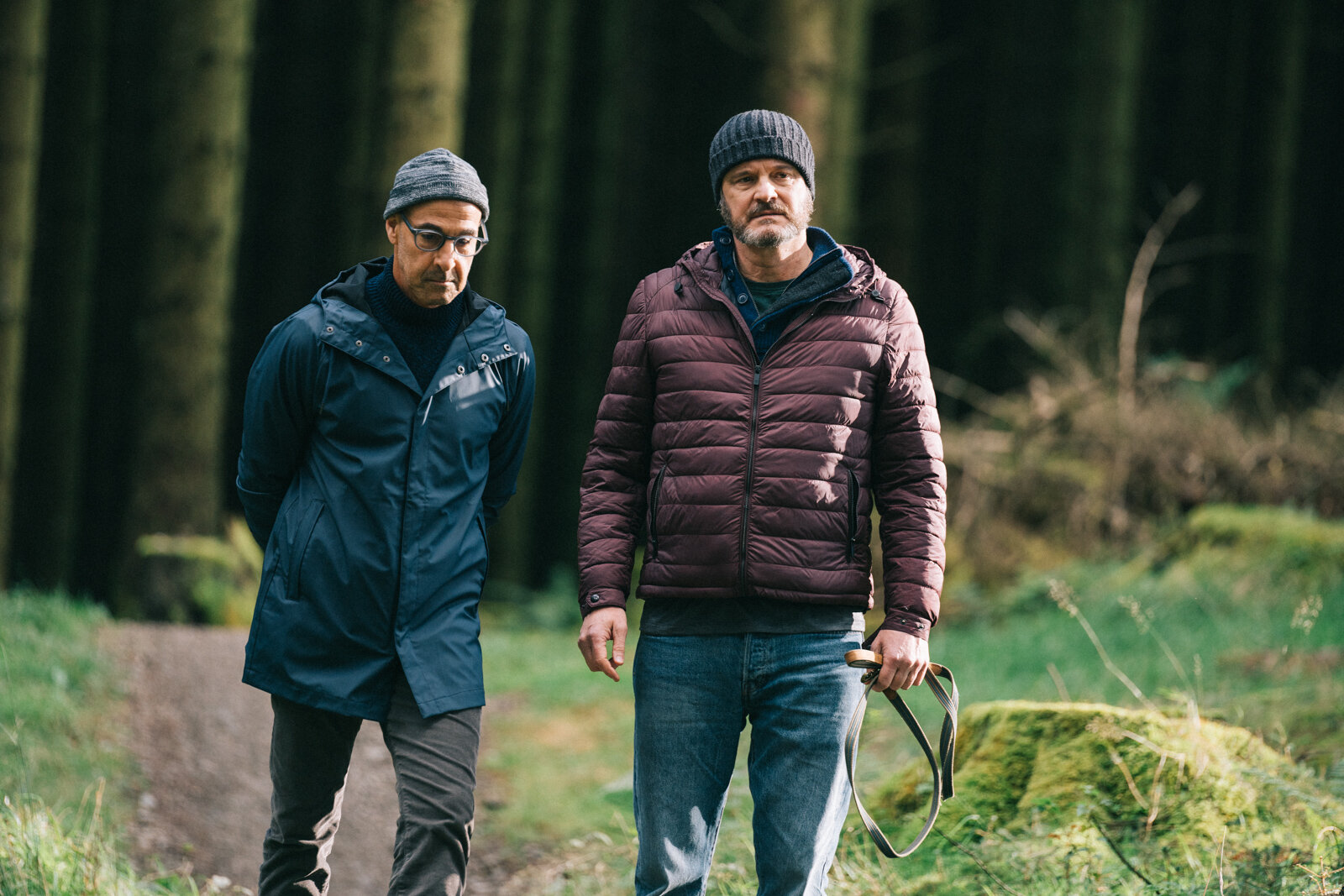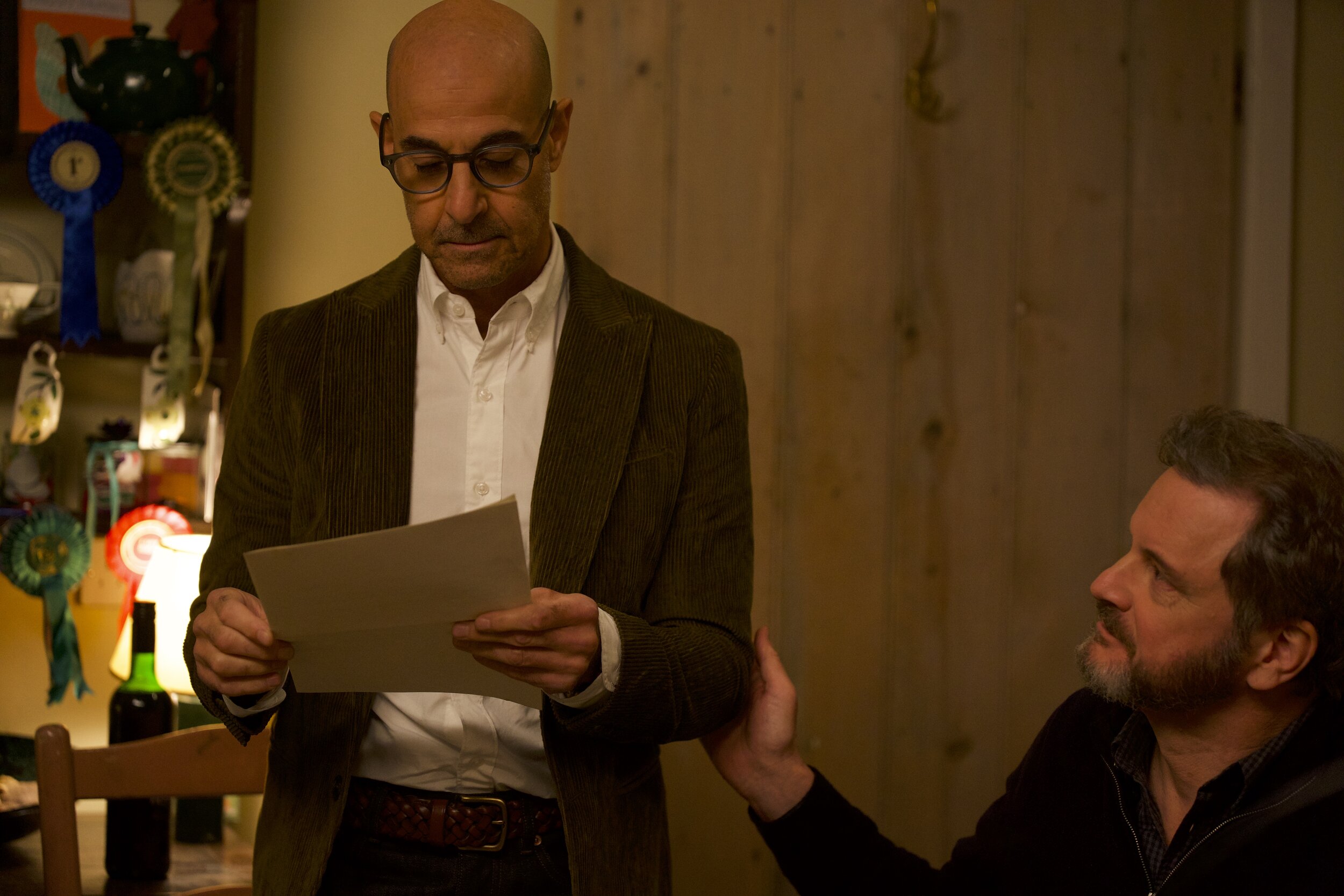MOVIE REVIEW: Supernova
SUPERNOVA-- 4 STARS
Harry Macqueen’s sophomore feature film takes its name from the celestial phenomenon of “the explosion of a star in which the star may reach a maximum intrinsic luminosity one billion times that of the sun.” We even watch the far off flicker of one occurring pre-credits. “Maximum intrinsic luminosity” meaning peak essential brightness, eh? Yes, that can aptly describe the very earthly power of Supernova’s loving relationship and the brimming personalities united in that bond.
The most miraculous part of such an endearing glow is that this film’s story is wrapped in corporal darkness. Supernova follows a man with a medical death sentence who is trying to say goodbye and face his rapidly approaching mortality with dignity. To shine brightness out of that is a very difficult task, yet the duo of Academy award nominee Stanley Tucci and Academy Award winner Colin Firth do so with charisma to spare.
In Supernova, Tucci plays Tusker, an American-born writer with early-onset Alzheimer’s disease. His significant other is the semi-retired British pianist Sam, played by Firth. We are introduced to them traveling in a late model Autotrail RV van. Sam is driving a tad slow and worrying about his quiet beau sitting next to him when they demonstrate how nagging is not gender exclusive until a good song comes on the radio to drown it out. From that first miniature episode, you quickly learn who’s who in this coupling.
The destination of their road trip is the Lake District of northern England with its striking mountains and deep lakes captured very well by Oscar-nominated cinematographer Dick Pope (Mr. Turner). The itinerary includes visiting friends and family along the way. Another goal is to make an audio tape of them conversing and sharing their thoughts to document the endeavor. All of this is meant to be done hand-in-hand, with no regrets, set to the melancholy score of the prolific multi-disciplinary artist Keaton Henson.
LESSON #1: YOU’RE NOT SUPPOSED TO MOURN SOMEONE WHEN THEY’RE ALIVE-- The keyword there is thoughts, and they are betraying Sam. While Tusker is resigned to his fate and eager to remain positive, Sam is increasingly filled with dread. He meddles when away from Tusker. Instead of liberating, this trip is stressful and feels like a parade of awkward goodbyes leading to the biggest one he is not ready for. He cannot contain his already present sadness and that weight is challenging to their trust and intimacy.
To that end, Supernova pushes away selfish questions of fairness and centers itself on love. Tusker seeks control of what faculties and choices he has left and wants to be, as he says, “Remembered for who I was, not who I’m about to become.” The preparation for letting go has to happen together for these two.
LESSON #2: FACING MORTALITY-- A movie like Supernova begs the audience reflection steps of what they would do with such prospects. How would you want to go out? Where and who would you visit before your life is over? Who would you want by your side? Could you embrace gallows humor and put your best face forward? When does the natural fear finally overwhelm that spirit? How would you hope to control any of those emotions as either the afflicted or the affectionate member of a long-term relationship?
These two 60-year-olds are an astonishing personality combination. You have the stiff Brit and sarcastic American, both as actors and characters. The two are right in their wheelhouses and could have played these archetypes in their sleep, as they have done in previous roles. However, Harry Macqueen, an actor-turned-filmmaker (Hinterland), squeezes solemnity from both leads that takes these men to higher planes of performance than their usual grooves.
Stanley Tucci slashes his rapier wit only to release poignant platitudes that come forth out of his normally impulsive character in an extraordinary fashion. Colin Firth is composure and principles, yet his insistent proxy is provoked to decorum-breaking emotions that rattle his failing will. When those differences collide, especially with these grave circumstances, the two fine actors flourish with the difficulties.
LESSON #3: TAKE IN ALL THE MOMENTS-- Lastly, circle back to titular astronomy. People may not explode like stars and we all are infinitesimal flickers compared to gassy giants, but we still shine plenty for those who we share time with. Stanley’s Tusker has a sweet scene talking to his pre-teen goddaughter that encapsulates this all-round natural brightness.
The two are laying on lawn chairs looking up at the starry heavens. He’s pointing out prominent landmarks and weaving factoids of how we are all the stuff of dead stars. The little girl likely doesn’t realize this is the last time she’ll hang out with her cool relative. She doesn’t know the moment, but he does.
Tusker begs her to promise that she’ll remember the advice to always and never stop asking questions. He tops it off with the G.K. Chesterton chestnut quote, “The world will never starve for want of wonders; but only for want of wonder.” The line goes right over the girl’s head. Does it bother the droll writer? Not a bit because it’s his moment too to mull over the same wisdom at a different point in life. That’s when the jovial becomes moving in this lovely little movie.
LOGO DESIGNED BY MEENTS ILLUSTRATED (#950)







